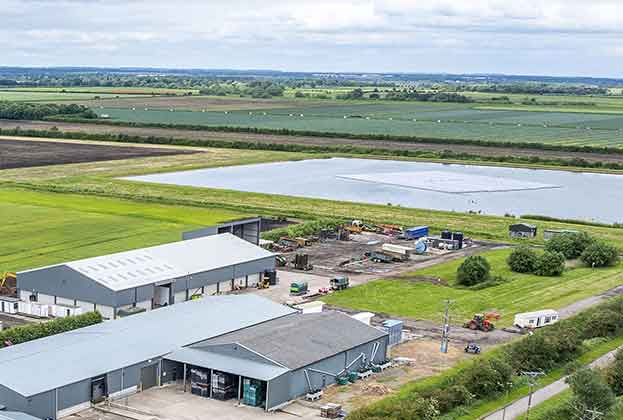As COP27 unfolds in Egypt, the UK’s presidency is handed over, but tackling the global climate crisis needs to remain a priority.
The building blocks to advance implementation of the Paris Agreement through actions that can get the world on a more sustainable, low-carbon pathway forward are a positive. Building blocks, guidelines, and hard and fast targets are what the property industry needs to advance. As policy makers debate matters such as embodied carbon and renewable energy, the UK’s private sector is pushing ahead.
Decarbonisation
80 per cent of UK buildings that will be present in 2050 already exist. Getting this stock to net zero, while demonstrating greater social conscience and continuing to thrive in a more challenging market, is a huge test.
Many commercial investors, developers, landlords and occupiers are devoting increasing time and investment to ESG, however, in some arenas, these discussions can be fragmented, with economic and environmental sustainability regarded as separate challenges rather than two sides of the same coin. There’s good reason to believe that filtering real estate through a green lens will lead to greater economic prosperity and better financial returns.
While decarbonising commercial property is a mammoth task, perhaps bigger is the residential sector. Almost 30 per cent of pre-war homes in England and Wales still carry an EPC rating of E or below, increasing to 47 per cent for those built pre-1900. With government planning to introduce energy efficiency requirements for private rented homes, Savills calculations indicate that 2.3 million rented homes need to be renovated by 2025.
Policy
The UK Government’s ambition to be the first net zero aligned financial centre has led to a much-welcomed mandate for financial institutions and publicly listed companies to publish their net zero transition plans by the end of 2023. We should therefore finally see all net zero commitments being accompanied by concrete monitorable plans.
The Science Based Targets Initiative facilitates the creation of a consistent cross-sector definition for net zero, and the work by the International Sustainability Standards Board, which provides a global set of standards for the financial sectors, will together serve as the backbone for sustainability disclosure requirements (SDR). These will enable greater transparency and reduce greenwashing in relation to sustainability claims.
Recent UK Government changes add a layer of uncertainty. With new leadership it’s more important than ever that we continue to commit to and, where possible, accelerate existing net zero targets. Greater detail on how the Government plans to meet emissions targets is critical, as a UK high court ruling earlier this year highlighted.
Energy
The renewable energy project pipeline shows that, in principle, the UK is well on track to hit and even exceed some net zero electricity targets, however much of this pipeline requires urgent attention to keep it on course. Key risks, including the capacity of existing grid infrastructure to accommodate new energy generation and delays in projects, receiving planning consent.
Looking forward
A lot has happened since the UK hosted COP26. The Ukraine war has created volatility in the global energy market – a critical concern – but also put greater focus on energy policy and the delivery of fossil fuel alternatives, while also addressing energy efficiency and security.
The race towards net zero touches us all and is a truly cross-sector property industry conundrum. We’re all on a journey with decarbonisation and the wider ESG agenda. To give ourselves a chance of success demands that we share experiences and learnings from across the property spectrum, accelerating adaptation and adoption of innovative solutions to arrive at a net zero and financially secure future as soon as possible.
Further information
On Earth Day, what is our understanding of ESG and property's role in tackling the climate crisis?

.jpg)







.jpg)
.jpg)